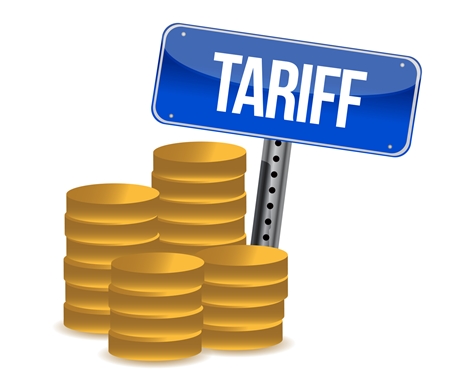The UK has struck a deal with the US to remove tariffs on British steel exports, although trade experts warned a broader trade deal between the two countries remains far off.
In Summary..
The agreement was struck after UK’s international trade minister, Anne-Marie Trevelyan, met her counterpart, the US commerce secretary, Gina Raimondo, on Tuesday evening in Washington.
The deal ended months of tensions that have stood in the way of a broader bilateral trade agreement, but US trade representative Katherine Tai also dealt a blow to the hopes of the UK government, which wants to secure a broad free trade agreement (FTA) as a sign of success in its Brexit policy.
Speaking after meeting Trevelyan separately in Baltimore, Maryland, Tai described FTAs as “a very 20th-century” tool and it might not be worth “blood sweat and tears” to agree. “I just want to say we are finding in trade that one size does not fit all,” Tai said, according to Politico.
Experts said the US was unlikely to start trade negotiations until at least November after midterm elections, and it would use talks to forcefully assert foreign policy priorities.
Advertisement
The US-UK steel deal included a provision requiring Chinese-controlled companies in the UK to be audited annually to ensure they were not breaching restrictions on Chinese steel exports. In practice, the main target of the provision will be British Steel, owned by China’s Jingye.
David Henig, the UK director of the European Centre for International Political Economy, a thinktank, said the China provision suggested UK negotiators would face a tricky balancing act if broader talks were opened.
“The UK government is keen to sign up to things, but it could be quite dangerous things they sign up to,” he said. “[The US is] going to drive a very hard bargain on things like China.”
In a joint statement, Raimondo and Tai said the deal would allow the allies to focus on what they described as “China’s unfair trade practices”.
“It points to the direction of travel we’re heading in,” said Sam Lowe, the director of trade at Flint Global, a consultancy. “I suspect we’re going to see more of this type of thing to ensure countries play by the rules – or the rules as the US sees them.”
Nevertheless, the steel deal does remove a recurrent sticking point between the two countries. British steel and aluminium companies that export to the US have faced tariffs of 25% and 10% respectively on their goods since 2018, when they were brought in by the then president Donald Trump. The UK retaliated with equivalent levies on prominent American products such as Levi’s jeans, bourbon whiskey and Harley Davidson motorbikes.
Advertisement
The US section 232 tariffs were introduced under “national security” concerns and were part of Trump’s broader efforts to put pressure on trading partners.
The UK steel industry reacted with alarm when the US agreed a deal with the EU to remove the Trump-era tariffs on European steel at the end of 2021, leaving British businesses at a disadvantage for months.
Sign up to the daily Business Today email or follow Guardian Business on Twitter at @BusinessDesk
The pact will also end Britain’s retaliatory tariffs on American goods, including Harley-Davidson motorcycles, bourbon whiskey, Levi Strauss blue jeans, and cigarettes.
Alasdair McDiarmid, operations director for the steelworkers’ union Community, welcomed the agreement, adding: “To protect jobs our steelmakers must compete on a level playing field, and it is vital the UK does not suffer a further competitive disadvantage with EU producers.
“The EU secured their deal with the US back in October, so a UK-US deal is well overdue, and it must be implemented without delay to prevent further damage to our industry.”
Boris Johnson’s position looks increasingly precarious following a spate of resignations, byelections defeats and nationwide dismay at the Partygate affair.
The entire saga is a perfect example of why we need rigorous, independent journalism. Without media scrutiny from the Guardian and our peers, we wouldn’t know about many of the government’s failings. There would have been no police fines, no independent investigation into Partygate. We would be none the wiser.
This is holding power to account, the most important task of journalists in an age of dishonesty and misinformation. Ever since Johnson became prime minister, Guardian journalists have worked tirelessly to reveal the shortcomings of his government: the Covid blunders, the insider contracts, the hypocrisy - of those who broke their own rules, partying or travelling when they shouldn’t have.
Our editorial independence means we are free to expose the failings of the powerful people who lead us in these troubled times. We have no shareholders and no billionaire owner, just the determination and passion to deliver high-impact global reporting, free from commercial or political influence. Reporting like this is vital for democracy, for fairness and to demand better from leadership.
And we provide all this for free, for everyone to read. We do this because we believe in information equality. Greater numbers of people can keep track of the global events shaping our world, understand their impact on people and communities, and become inspired to take meaningful action. Millions can benefit from open access to quality, truthful news, regardless of their ability to pay for it.
Since we started publishing 200 years ago, tens of millions have placed their trust in the Guardian’s fearless journalism, turning to us in moments of crisis, uncertainty, solidarity and hope. More than 1.5 million supporters, from 180 countries, now power us financially – keeping us open to all, and fiercely independent.

